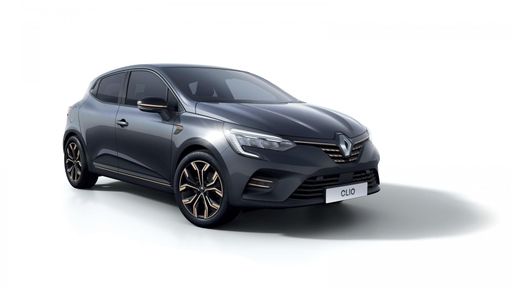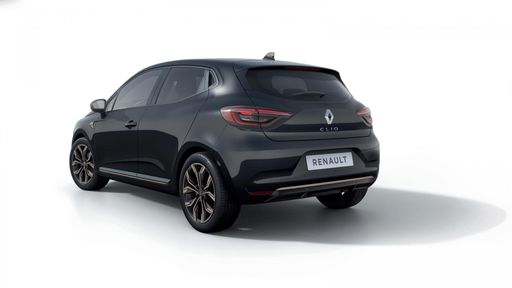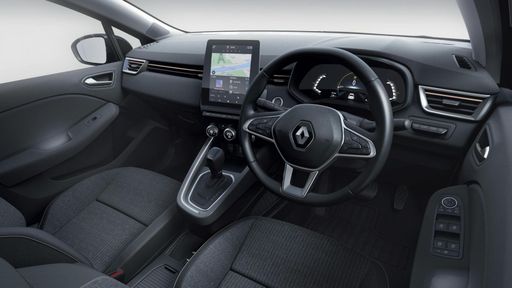Hyundai Kona vs Renault Clio – Differences & prices compared
Two cars, one duel: Hyundai Kona meets Renault Clio.
Which one wins in performance, efficiency and value for money? Find out now!
Costs and Efficiency:
When it comes to price and running costs, the biggest differences usually appear. This is often where you see which car fits your budget better in the long run.
Renault Clio has a evident advantage in terms of price – it starts at 16600 £, while the Hyundai Kona costs 23100 £. That’s a price difference of around 6472 £.
Fuel consumption also shows a difference: Renault Clio manages with 4.10 L and is therefore somewhat more efficient than the Hyundai Kona with 4.60 L. The difference is about 0.50 L per 100 km.
Engine and Performance:
Under the bonnet, it becomes clear which model is tuned for sportiness and which one takes the lead when you hit the accelerator.
When it comes to engine power, the Hyundai Kona has a noticeable edge – offering 218 HP compared to 158 HP. That’s roughly 60 HP more horsepower.
In acceleration from 0 to 100 km/h, the Hyundai Kona is hardly perceptible quicker – completing the sprint in 7.80 s, while the Renault Clio takes 8.30 s. That’s about 0.50 s faster.
In terms of top speed, the Hyundai Kona performs somewhat better – reaching 210 km/h, while the Renault Clio tops out at 180 km/h. The difference is around 30 km/h.
There’s also a difference in torque: Hyundai Kona pulls clearly perceptible stronger with 265 Nm compared to 205 Nm. That’s about 60 Nm difference.
Space and Everyday Use:
Cabin size, boot volume and payload all play a role in everyday practicality. Here, comfort and flexibility make the difference.
Both vehicles offer seating for 5 people.
In curb weight, Renault Clio is evident lighter – 1124 kg compared to 1370 kg. The difference is around 246 kg.
In terms of boot space, the Hyundai Kona offers to a small extent more room – 466 L compared to 391 L. That’s a difference of about 75 L.
In maximum load capacity, the Hyundai Kona performs slight better – up to 1300 L, which is about 124 L more than the Renault Clio.
When it comes to payload, Hyundai Kona barely noticeable takes the win – 490 kg compared to 463 kg. That’s a difference of about 27 kg.
Who comes out on top?
Overall, the Hyundai Kona shows itself to be leaves the rival little chance and secures the title of DriveDuel Champion.
It convinces with the more balanced overall package and proves to be the more versatile choice for everyday use.
 @ Hyundai Motor Company
@ Hyundai Motor Company
Hyundai Kona
Hyundai Kona
The Hyundai Kona wears its personality on the outside with bold styling and sprightly handling that turns city driving into something a little more fun than a commute. It blends practical space, modern tech and sensible running costs into a compact, stylish package — a smart pick if you want flair without paying luxury prices.
details @ Hyundai Motor Company
@ Hyundai Motor Company
 @ Hyundai Motor Company
@ Hyundai Motor Company
 @ Hyundai Motor Company
@ Hyundai Motor Company
 @ Hyundai Motor Company
@ Hyundai Motor Company
Renault Clio
The Clio punches above its weight with chic French styling and a surprisingly grown-up cabin that makes city driving feel effortlessly stylish. It's an easy-to-live-with choice that keeps ownership simple and even manages to put a grin on your face when the traffic gets dull.
details @ Renault Group Media
@ Renault Group Media
 @ Renault Group Media
@ Renault Group Media
 @ Renault Group Media
@ Renault Group Media
 @ Hyundai Motor Company
@ Hyundai Motor Company
|
 @ Renault Group Media
@ Renault Group Media
|
|
|
|
Costs and Consumption |
|
|---|---|
|
Price
23100 - 41600 £
|
Price
16600 - 23700 £
|
|
Consumption L/100km
4.6 - 7 L
|
Consumption L/100km
4.1 - 5.3 L
|
|
Consumption kWh/100km
14.6 - 16.8 kWh
|
Consumption kWh/100km
-
|
|
Electric Range
377 - 514 km
|
Electric Range
-
|
|
Battery Capacity
1.3 - 65.4 kWh
|
Battery Capacity
0.60 kWh
|
|
co2
0 - 163 g/km
|
co2
92 - 121 g/km
|
|
Fuel tank capacity
38 - 47 L
|
Fuel tank capacity
39 - 42 L
|
Dimensions and Body |
|
|---|---|
|
Body Type
SUV
|
Body Type
Hatchback
|
|
Seats
5
|
Seats
5
|
|
Doors
5
|
Doors
5
|
|
Curb weight
1370 - 1773 kg
|
Curb weight
1124 - 1331 kg
|
|
Trunk capacity
466 L
|
Trunk capacity
301 - 391 L
|
|
Length
4350 - 4385 mm
|
Length
4053 - 4116 mm
|
|
Width
1825 mm
|
Width
1768 - 1798 mm
|
|
Height
1580 - 1585 mm
|
Height
1440 - 1451 mm
|
|
Max trunk capacity
1300 L
|
Max trunk capacity
979 - 1176 L
|
|
Payload
420 - 490 kg
|
Payload
398 - 463 kg
|
Engine and Performance |
|
|---|---|
|
Engine Type
Electric, Petrol, Full Hybrid
|
Engine Type
Full Hybrid, Petrol
|
|
Transmission
Automatic, Manuel
|
Transmission
Automatic, Manuel
|
|
Transmission Detail
Reduction Gearbox, Manual Gearbox, Dual-Clutch Automatic
|
Transmission Detail
Automatic Gearbox, Manual Gearbox, Dual-Clutch Automatic
|
|
Drive Type
Front-Wheel Drive, All-Wheel Drive
|
Drive Type
Front-Wheel Drive
|
|
Power HP
115 - 218 HP
|
Power HP
67 - 158 HP
|
|
Acceleration 0-100km/h
7.8 - 11.9 s
|
Acceleration 0-100km/h
8.3 - 17.1 s
|
|
Max Speed
162 - 210 km/h
|
Max Speed
160 - 180 km/h
|
|
Torque
200 - 265 Nm
|
Torque
95 - 205 Nm
|
|
Number of Cylinders
3 - 4
|
Number of Cylinders
3 - 4
|
|
Power kW
85 - 160 kW
|
Power kW
49 - 116 kW
|
|
Engine capacity
998 - 1598 cm3
|
Engine capacity
999 - 1789 cm3
|
General |
|
|---|---|
|
Model Year
2024 - 2025
|
Model Year
2023 - 2026
|
|
CO2 Efficiency Class
A, D, C, E, F
|
CO2 Efficiency Class
C, D, B
|
|
Brand
Hyundai
|
Brand
Renault
|
Is the Hyundai Kona offered with different drivetrains?
Available configurations include Front-Wheel Drive or All-Wheel Drive.
The prices and data displayed are estimates based on German list prices and may vary by country. This information is not legally binding.
